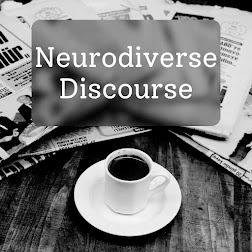Neurodiverse Discourse
In which I discuss the media's views on neurodiversity...
In the past month or so there have been various articles and think-pieces in the British media about the increase in diagnoses of ADHD and other neurodiverse conditions (that's things like autism, dyslexia and dyspraxia, the latter of which I myself have). Most of these have been pretty unpleasant, describing having ADHD as something which is fashionable. One Sunday Times journalist said "celebrities have convinced us that we all need an 'illness identity'". This is, to put it politely, nonsense.
Diagnosis can be and often is life-changing for many neurodiverse people. Until then, you feel like you don't quite fit in like there's something fundamentally wrong with you. It's difficult enough as an adult but usually, you've had enough life experience to manage the majority of the challenges neurodiversity brings to you. When you are at school and still trying to understand who you are and how to cope with life the struggles can be really tough. I remember the day I realised I have dyspraxia very vividly and it frustrates me that no-one identified it when I was a child. I can reflect that though some parts of my childhood were tricky, I had a relatively easy ride- I can only imagine how challenging it would be to get through school with dyslexia or autism for example. Diagnosis allows you to understand yourself, that there's not something wrong with you it's just that your brain is wired a little differently and it can provide the opportunity to gain help and support.
I have often thought about how fascinating it is that such a large number of people in the public eye have ADHD and other conditions. It's not uncommon in the arts because many of the traits that come with ADHD are extremely beneficial to performers. It also seems odd to complain about people being inspired by celebrities getting diagnoses to seek out their own. People do not wake up one day and seek a diagnosis for something they don't relate to. Celebrities using their position to share their personal experience can be a really effective way for people to understand themselves.
It is true that the number of diagnoses of these conditions is on the increase. Researchers are often coming up with theories on why this is with occasional papers suggesting it might be partly down to pollution or diet or any number of environmental factors. These sorts of things are only theories that remain largely unproven. It's worth remembering that the population is continually growing so that inevitably means there will be more neurodiverse children. The biggest reason though has to be our understanding of these conditions which has grown enormously over the last twenty years. It might be that the proportion of the population that is neurodiverse hasn't grown very much, it's just that professionals are far, far better at identifying it. Previously these conditions, especially autism, were under-diagnosed in girls (this is improving but is still an issue). We probably all know people from our childhood, from our local town, who seemed a bit unusual that were almost certainly neurodiverse but no-one ever spotted it.
Some articles have blamed people seeking out a diagnosis for the services that provide them being stretched. If you believe that then you have a total lack of understanding of the problems across the public sector of the UK right now after years of government cuts. Many people have gone on strike over the last few months. I can't speak for other services, but I know in teaching that whilst the pay is part of the issue for most people it's about the funding cuts and how challenging that makes the job. The government likes to say that they've actually increased spending which may technically be true but doesn't really help after years of cuts and the current rate of inflation. If an apple costs £1 and you only have 50p then you can't buy the apple. If the government gives you another 25p they have technically increased the amount you have but you still can't buy the apple and the problem hasn't been solved.
Whilst the media are churning out nonsense like 'illness identities', people with neurodiverse conditions are being failed. I regularly hear stories about teachers being told they simply can't put children through to be diagnosed. One told me that she was told she could put forward a maximum of two students in her class that could be diagnosed with dyslexia despite the fact that she identified five students with it. I don't blame schools and the services they work with for having to make these impossible decisions but it shouldn't be that way. There are so many people, children and adults, out there who have been told that they probably have a condition but it's not severe enough for someone to cough up the money to pay for it. Being told it's 'not severe' is no comfort to someone whose everyday life is profoundly affected in multiple ways by the way their brain works.
I always like to have hope for things. The fact that so many people are being recognised as being neurodiverse is a sign of the progress that is being made in this area. As horrific as these articles are, the fact the issue is being discussed suggests there is more public awareness than there has been previously. Neurodiverse people have been saying for some time that though awareness is a positive thing the funding needs to come with it. With a change of government almost certainly fairly imminent, I like to think this will improve. In the meantime, if you see an article spouting disinformation (frankly the one I quoted isn't far off simply being hate speech) then you can complain to the journalism regulator IPSO here.


Comments
Post a Comment